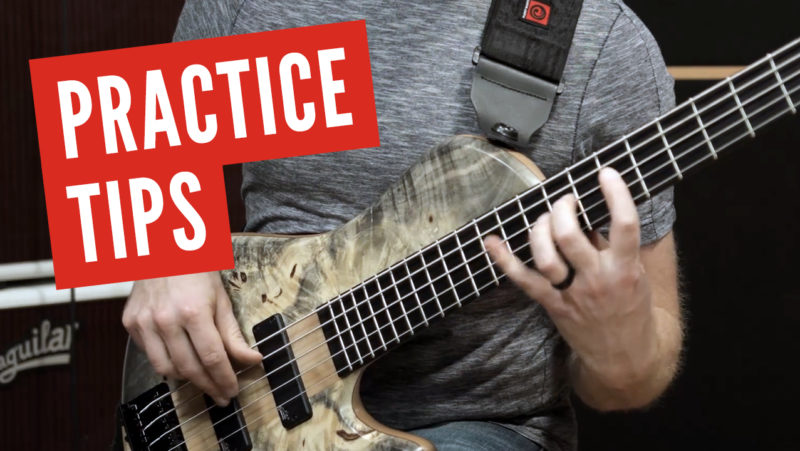Here’s something that I need to constantly remind myself of: When someone hires you for a gig they’re interested in you sounding like you, not like someone else. I personally struggle with this constantly for a number of reasons. In the studio when someone contacts me about collaborating on songwriting my instant thought is this: Well, they couldn’t possibly be interested in my music because he/she is a pop singer, so they must want me to produce a track that sounds like something they’re used to hearing. I’ll ask questions like, “What kind of song do you want to do?” and “Is there a particular genre/singer/style/track that you want us to emulate?” I don’t know why, but the idea of someone being interested in my thought process and my style is never the first thought; I just always assume there’s something else that they want from me.
Maybe it’s the classically-trained musician in me who wants to conduct the performance exactly as it is on paper, adhering to the composer’s intentions and honoring his art. Maybe it’s the years of playing cover tunes, always playing someone else’s song, groove, structure and melody. I’m not sure why I’m wired this way but I quite often forget that people want to hire me for being me.
It almost seems pretty self-explanatory, but I forget it all the time. I was contracted for a gig not too long ago and kept asking the question, “Why did he hire me for this?” I say that because the person who hired me is a bass player himself and also has a slew of other bass players he normally uses to cut records and play with live – why did he choose to go with me this time? Did he want me to sound like his normal go-to guys, or cop licks that he would normally do? Did he want me to focus more on my stage presence and keep the performance simple, or vice versa? I kept mowing all these thoughts around in my head and, upon asking him, the answer was simple: he liked the way I sounded.
I cut a record recently with an artist who wanted to do a very “Old-Skool” recording, a la the Beatles. I kept asking if he wanted me to rock the “Paul McCartney” tone or play some kind of McCartney-esque line to compliment the melody (as Paul was so accustomed to crafting in all of his songwriting). The client’s answer was always, “Nah man. Sound like you.” When he said “Old-Skool” I figured, again ignoring the obvious, that he wanted me to emulate someone else’s sound, when in reality all he wanted to achieve was our particular ensemble with the techniques and technologies of yesterday.
So maybe you don’t struggle with this problem the way that I do, or maybe you don’t even realize that you do, but it’s something I wrestle with quite often. Maybe it’s because I want to satisfy everyone that I work with, or perhaps it’s just my lack of confidence poking out, but you can pretty much bank on the person hiring you to be interested in your sound and your interpretation. Now, there might be moments where they ask you to step out of your comfort zone, and they may do this by referencing another artist or player or song, but don’t let that take you too far away from yourself. If they really wanted Pino or Victor or East, they’d hire them. But they didn’t. They have you to work with, so be sure to give them what they’re paying for.
Just my two cents 🙂








MG
I think if we are talking about session playing there are some ground rules that need to be convered.With out some sort of frame work it allows for misunderstanding and general tension in the session.
As a session player if someone is paying you it`s a good idea to try and give them what they are paying you for, namely something they want. So you are hired again and every wins.
As a person, that employs a session player you have a reasonability and obligation to provide all necessary information so that the player can do what you are asking them to do. This may include demos you tube videos anything that will help them get on your level. If you do not then it is your own fault as the employer because you basically asking them to read your mind.
I found it is best to (a) allow the player who is experienced to play what they want. (b) Ask them to play the thing you want after they have played what they want. Then take all that info back and put together the track the way you want. By allowing, them to play what they want they offer insight and perspective, which may not have been available to you.
At all times I think it is important to respect the talent and spirit of the person you are asking to play for you. Music is a funny thing. It is not accounting or math. People play instruments because they like doing it. So it`s important to keep a fun light creative vibe to it all.
As session player, it is also you’re responsibly to make sure you get the person that is asking you to play for them to clearly outline what it is they want. Sometimes they don`t know, which in that case you kind of need to feel stuff out.
Jayme
Definitely; there are times (and they’re usually very obvious) when the person hiring me has something specific in mind that isn’t my “go-to.” In this case I undoubtably give the person what they are asking for. In the studio it may mean copping someone else’s style but it also translates into Live when people want you to play EXACTLY what’s on the record. But as you mentioned it’s always understood upfront as to avoid that tension and misunderstanding.
When I track players I like to do it exactly as you said, and most of the time people who work with me in the same way. As a producer and composer I love getting some fresh ears on a tune, especially when it’s from a player I respect and admire. But then again, other times I know exactly what I want and want to make sure that I get it.
And to be honest that’s what I love most about music; though it’s a “job” and can be a “career” it’s first and foremost a passion; I’d be playing music every day even if I DIDN’T get paid for it; I’m not sure that I could say the same thing about the dude working at the accounting firm. But I could be wrong about that 😉
Thanks for chiming in MG!